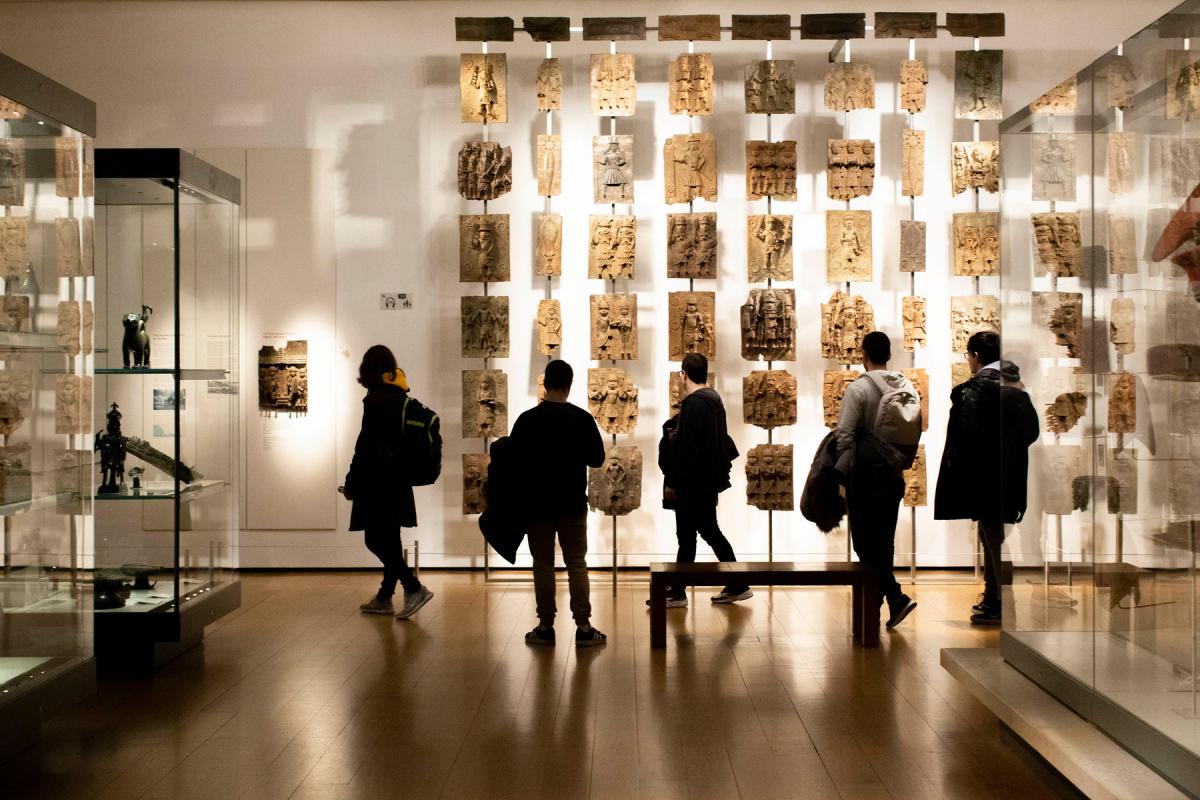There are no products in your shopping cart.
| 0 Items | £0.00 |


LONDON'S Horniman Museum is considering returning several Nigerian artefacts including bronze statues obtained using colonial violence during the 1897 Massacre of Benin in response to the growing clamour for correcting British wrongs against its former colonies.
Collections at the Horniman Museum in Forest Hill include plaques, figures and ceremonial items taken from the Kingdom of Benin in 1897. Last month, Scotland's University of Aberdeen agreed to return a Benin bronze artefact to Nigeria within weeks more than a century after Britain looted the sculptures and auctioned them to Western museums and collectors.
This follows a decision taken by the of University of Cambridge's constituent school Jesus College to return its emblem a bronze cockerel to Nigeria as it was forcefully taken by colonial conquerors during the 1897 Massacre of Benin. In an unprecedented step that adds momentum to the growing repatriations movement, Jesus College has agreed to return the cockerel known as Okukor described as a royal ancestral heirloom to the people of Benin.
Its return was recommended by Jesus College’s Legacy of Slavery Working Party, a group dedicated to looking at the institution’s connections to slavery, which confirmed the piece was donated in 1905 by the father of a student. Sonita Alleyne, the master of Jesus College, said the decision was not taken to erase history but came after diligent and careful work that looked into the wider legacy of slavery at Jesus College.
Last month, Governor Godwin Obaseki of Edo State met with German foreign ministry officials to demand the return of precious artefacts looted during the 1897 raid, revealing that he intends to house them in his proposed Edo Museum of West African Art. Hoping to restore some of the lost glory of the old Benin Kingdom and build a vibrant tourist trade around it, Governor Obaseki plans to open an Edo Museum of West African Art where all these artworks will be displayed.
Now Horniman Museum is joining the fray after consultations with London's Nigerian community. Since 2017, the Benin Dialogue Group , which brings together the current Oba of Benin, the Nigerian government and museums across Europe, has been working on a plan for some Benin bronzes to return to Nigeria.
If returned, Nigeria plans to house repatriated bronzes in the Edo Museum of West African Art set to open in 2025. Campaign group Topple the Racists recently added the Horniman Museum to an interactive map detailing the statues in the UK that have links to colonialism.
Among other things, the Horniman's collection includes 15 Benin bronze plaques depicting Obas and legendary figures, a brass cockerel called an Ebon which would be placed on the altar of a dead Lyoba (queen mother) and a ceremonial paddle called an Ovbevbe used by priests to ward off evil. Other artefacts at the museum include a plaque, an ivory staff of office, a brass bell typical of those worn around the necks of Benin's warriors, along with an ivory staff of office.
Nick Merriman, the chief executive of the museum, said its eponymous founder was a Quaker and a member of the Anti-Slavery Society. He added: "However, it is important to remember too that the wealth that enabled Frederick Horniman to make his collection, build his museum and campaign as a social reformer, was reliant on the tea trade built on the exploitation of people living in the British Empire.
"We recognise that we are at the beginning of a journey to be more inclusive in our stories and our practices and there is much more we need to do. This includes reviewing the future of collections that were taken by force or in unequal transactions."
Britain's tea trade is known to have depended on the repurposing of land to create tea plantations, often forcing people living there to leave. The tea-growing process was hard work, poorly paid and in many cases involved the use of forced labour.